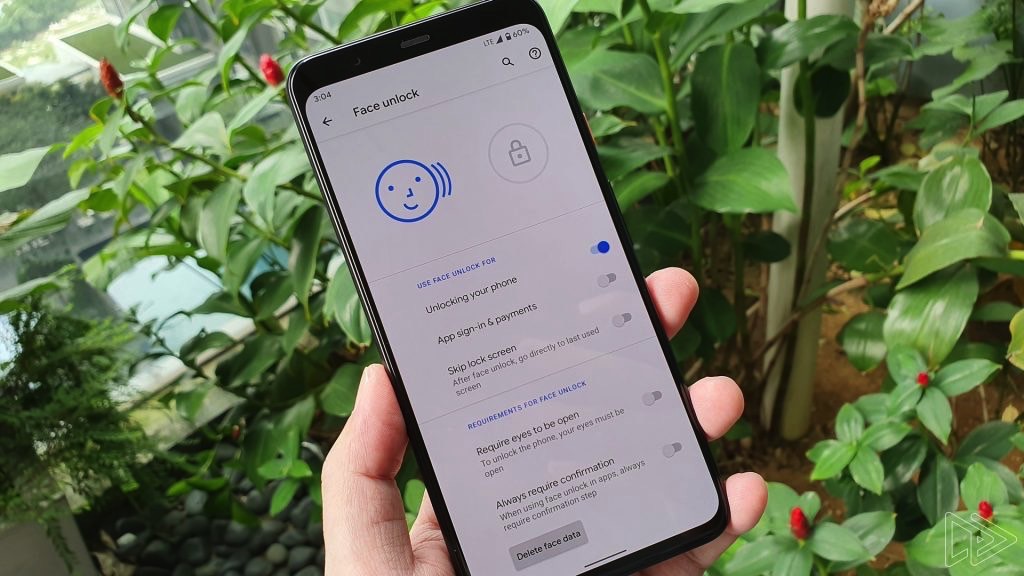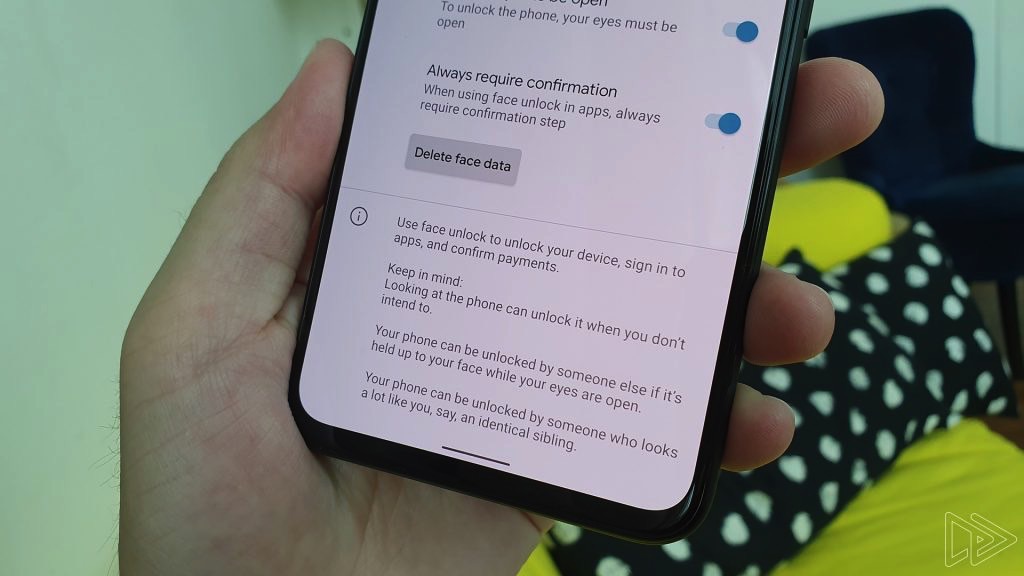Whether Google admits it or not, the iPhone has clearly been a huge inspiration the Pixel. The first model looked just like an iPhone 6, the Pixel 2 came without a headphone jack, and the Pixel 3 introduced featured a notch. The Pixel 4 series will also get a signature iPhone, one that analysts estimated Android rivals would need two years to replicate. We’re talking about 3D face recognition, which first debuted on the iPhone X in 2017.
Both the Pixel 4 and Pixel 4 XL will feature Face ID-like functionality that will replace fingerprint sensors, and an early review says Google’s Face ID works pretty much like the iPhone, in spite of Google’s earlier claims.
It was only a couple of months ago that Google confirmed the Pixel 4 would support 3D face recognition, as well as a new radar-based gesture system: Motion Sense, or Soli. Here’s what Google said about “Face unlock” at the time:
Unlocking your phone should be easy, fast, and secure. Your device should be able to recognize you—and only you—without any fuss. Face unlock may be a familiar feature for smartphones, but we’re engineering it differently.
Other phones require you to lift the device all the way up, pose in a certain way, wait for it to unlock, and then swipe to get to the homescreen. Pixel 4 does all of that in a much more streamlined way. As you reach for Pixel 4, Soli proactively turns on the face unlock sensors, recognizing that you may want to unlock your phone. If the face unlock sensors and algorithms recognize you, the phone will open as you pick it up, all in one motion. Better yet, face unlock works in almost any orientation—even if you’re holding it upside down—and you can use it for secure payments and app authentication too.
From the sounds of it, Google’s Face unlock should be significantly better than the iPhone. By the way, Apple has been improving Face ID with the iPhone XS and iPhone 11, and that’s pretty much the only competition Google has. The rest includes a couple of Huawei Mate models and a Xiaomi 2018 flagship.

This brings us to an early review from Nextrift that already gave us a good look at the Pixel 4’s camera. Face unlock on a Pixel 4 XL running early software was also detailed, and it sounds very familiar:
And then we have a pretty big new feature on the Pixel 4 XL: Face Unlock, which appears to be Google’s answer to Apple’s Face ID. For the most part, it works a lot like Apple’s implementation. Even the setup process for Face Unlock is very similar to Face ID, requiring me to move my head in a circular motion.
Once the feature is set up, a quick glance is enough to unlock the Pixel 4 XL, and it seems to work even in darker environments. However, if the phone is set flat on a table, it wouldn’t be able to recognise my face. I would have to be looking directly at the phone for the biometric security to do its thing.
This sounds basically identical to the Face ID experience on the iPhone. What the reviewer hasn’t tried is to use Face unlock in “almost any orientation.” In a follow up from Nextrift, we learned another detail about Face unlock:
While the Pixel 4 XL’s Face Unlock feature works pretty well in our testing, there is one big caveat: it may not be as secure as Apple’s Face ID. In the Face Unlock settings page, there’s a disclaimer below that warns your phone can be unlocked by someone “who looks a lot like you.”
Now, we don’t know any identical twins to really put this to the test, but it is interesting for Google to put that disclaimer there; whether or not Face Unlock can be fooled by your evil twin remains to be seen. At least, until the device is in the hands of consumers to try out more comprehensively.
Apple explained its Face ID feature thoroughly when it launched two years ago, and we’ve seen some people attempt to hack it with the help of prosthetics or identical twins. And it worked, but only in those particular cases. Face ID is a lot more difficult to hack than Touch ID, and a lot more secure. It’s likely that Google’s Face unlock will be just as secure as Face ID, but it’s still interesting that Google had to put that disclaimer inside the phone:

That said, the leaked Pixel 4s have early software, so the release versions of Android 10 shipping with the phone might improve Google’s Face ID to the point where it is actually superior to many of its rivals.







